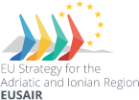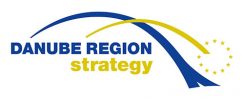National workshop in Italy “The MSP Directive in the maritime national scenario. Multilevel governance in the EUSAIR context”
On Monday, the 19th of November 2018, national workshop “The MSP Directive in the maritime national scenario. Multilevel governance in the EUSAIR context” took place in Venice.
About fifty participants, including representatives of local authorities, military and scientific institutions, representatives of the productive sectors operating within the maritime space, discussed the opportunities that the transposition of the EU directive on Maritime Spatial Planning offers to promote the development of the Blue Economy, reduce conflicts between sectors and optimize the use of sea.
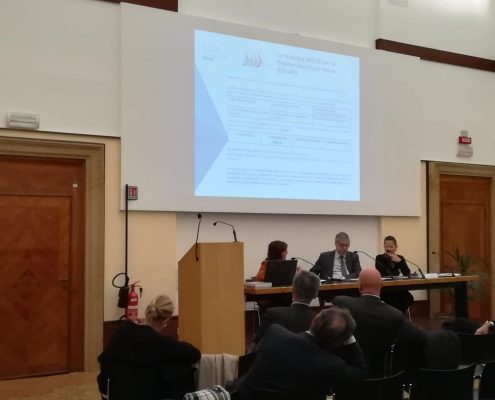
The event inspired a lively debate among the participants and has been promoted by the Veneto Region with the cooperation of the IUAV University, which hosted the imitative in the “Palazzo Badoer” and the CNR – Institute of Marine Sciences.
The initiative is part of the activities 2018 deriving from the participation of Veneto Region as a Regional Focal Point of the Pillar 1 Blue Growth within the EUSAIR strategy. The event has been funded by the project Facility Point through its Italian Partner, Marche Region.
The first session during the morning was aimed to share the reference scenario of the MSP Directive and its implementation at EUSAIR level. Also, has been introduced the web platform “EU MSP Platform” funded by DG MARE to support Member States in the application of the EU Directive https://www.msp-platform.eu/. The platform provides a team of expert for each marine area, an interactive web-based platform, studies and research on MSP implementation, workshops and initiatives to exchange knowledge and experience.
Representative from the RAM (the Italian state-owned company involved in developing the Mediterranean motorways of the sea) gave an overview on the support provided to the Italian Ministry of Infrastructure and Transport in the implementation of the Legislative Decree - October 17, 2016, n. 201 (Implementation of Directive 2014/89 / EU establishing a framework for maritime spatial planning) and in the development of the SUPREME project activities aimed to support the Maritime Spatial Planning in the Eastern Mediterranean.
Also, have been shared the actions put in place for transposing the Directive in Italy and the multilevel governance system set up: a Coordination Interministerial “working table” which has defined the guidelines for the preparation of maritime space management plan and a Technical Committee governing the operation.
The second session of the workshop offered some interesting insights of different productive sectors and how Maritime Spatial Planning measures could support the development of such sectors and the conflicts reductions among different users of the sea.
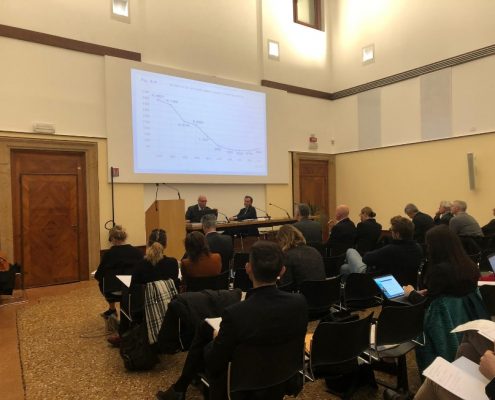
A first presentation focused on the maritime and coastal tourism, on the need for the sector to coexist with other maritime activities and on how tourism and recreation can benefit from the diversification prompted by MSP through time, space and the introduction of new activities. Assomarinas, the Italian Marina Network, gave an overview of the state of the art of the tourism ports and provided interesting data on powerboat sales and on the specific features and needs of this tourism niche sector.
Other relevant contributions were provided by representative of fisheries (Socio Economic Observatory for Fishing and Aquaculture - Veneto Agricoltura) and Aquaculture Sector (Mediterranean Aquaculture Association). MSP offers many opportunities to fisheries, including the possibility to assess the drivers for fishermen’s behaviour, analyse seasonal dynamics and spatial changes under different pressures further to the projection on future fishing areas. Also, access to space for aquaculture and unclear regulation, have been identified as obstacles to the development of aquaculture in the EUSAIR regions and marine spatial planning can play a role in addressing this issue.
A Representative from ENEA, the Italian National Agency for New Technologies, Energy and Sustainable Economic Development shared interesting information on the vast source of potential energy resources provided by the ocean (e.g. waves, tidal range and tidal currents) with a focus on the Mediterranean Sea. Spatial synergies are aspect of a paramount importance to be developed between the energy sector and other uses and also between different types of energy production at sea.
The final presentation of the morning was focused on the coastal zone management, on its multiple use and functions and on Land&Sea interaction with a focus on the Mediterranean and Adriatic and Ionian Regions. The coastal areas at risk of erosion and marine flooding in the Adriatic and Ionian area have been highlighted and the existing initiatives and adaptation measures put in place for coastal protection.
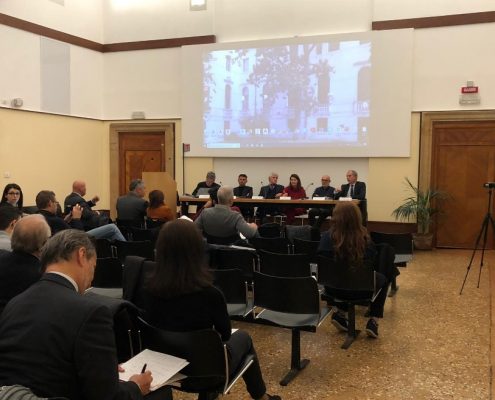 The presentation pointed out the need of a unitary vision of the coastal system (environmental, economic and social aspects) and a multidisciplinary approach in definition of adaptive solutions and local sustainable development models.
The presentation pointed out the need of a unitary vision of the coastal system (environmental, economic and social aspects) and a multidisciplinary approach in definition of adaptive solutions and local sustainable development models.
The afternoon session was devoted to debate among all the experts which pointed out the complex and multiple dimensions of the MSP application process and how the different institutional levels (local, regional and national) and the different sectors are called upon to cooperate.
The table underlined also the needs to extend this exchange of knowledge and experience at EUSAIR level planning another workshop with representative from all the involved countries, since MSP represents a crucial issue for Strategy Implementation taking into account the need to coordinate the activities at sea for a proper and sustainable development with particular reference to the Blue Growth and the marine environment protection issues.
The agenda of the workshop and the presentations are available here.
You might be interested in
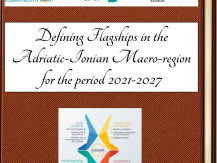
EUSAIR flagships all summed up!
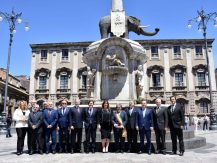
3rd EUSAIR Annual Forum – CATANIA DECLARATION

The Hellenic Republic assumes the Presidency of the EU Strategy for the Adriatic and Ionian Region (EUSAIR) (1 June 2024 – 31 May 2025)




